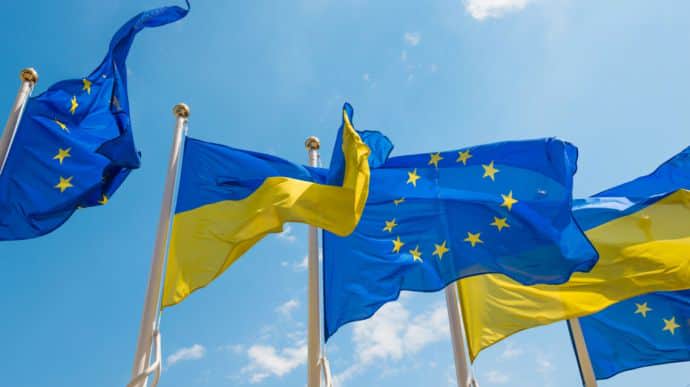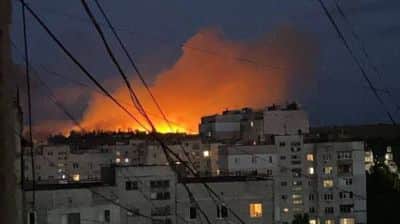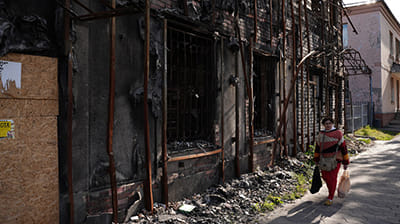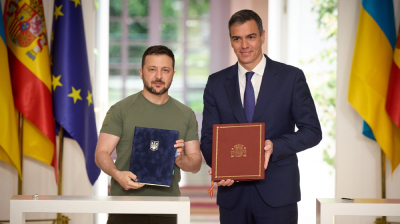EU decides to use income from frozen Russian assets to help Ukraine

EU leaders have approved plans to allocate billions of euros obtained from frozen Russian assets to help Ukraine, and the European Commission, as expected, will make corresponding legal proposals at the beginning of December.
Source: European Pravda with reference to the Financial Times, which is familiar with the discussion at the summit, and the summit’s conclusions
Since Russia’s full-scale invasion of Ukraine, US$300 billion belonging to the Russian Central Bank has been frozen due to Western sanctions. The Belgian government said that a large part of these funds, €180 billion, is being stored in Euroclear, the world’s largest securities depository, which has its headquarters in Brussels.
Euroclear stated on 26 October that it had earned nearly €3 billion on these frozen Russian assets in the first nine months of this year alone, compared to €347 million during the same period in 2022, and that this increase was due to a rise in interest rates.
Coupon payments and bond redemption relating to frozen Russian assets have got stuck in Euroclear since they cannot be paid to sanctioned clients. Euroclear is constantly reinvesting such cash balances, and the rise in interest rates means the depositary is earning more on these investments.
EU officials are searching for ways to direct this income to Ukraine, but the European Central Bank has warned them about potential risks for the euro related to access to these funds, stressing that it may encourage other central banks to give up their euro-denominated assets and weaken the currency.
However, the leaders who gathered at the summit on 27 October approved this step, calling upon the European Commission to "accelerate work with a view to submitting proposals".
The summit’s concluding statement mentions the need for progress, in coordination with partners, on using any extraordinary revenues of private entities stemming directly from Russia’s immobilised assets to support, rebuild and reconstruct Ukraine, consistent with applicable contractual obligations, as well as EU and international law. The European Council called on the High Representative and the Commission to accelerate work with a view to submitting proposals.
The Commission is planning to present the proposals in early December, two officials involved in their preparation told the Financial Times.
"These conclusions are a green light for us," one of them said.
Brussels is regularly in touch with London and Washington in order to facilitate the synchronisation of their approaches, the officials added.
Some EU member states, such as Germany, had been sceptical about these plans due to legal problems connected with the legal right to the funds. That changed at the beginning of this month when US Treasury Secretary Janet Ellen supported the idea of using windfall profits. The G7 has also supported these plans.
Estonia, one of the countries strongly pushing for this measure, said it was important for Russia to pay for the damage it was doing in Ukraine. "The restoring of the damage that Russia has caused, it has to be paid [for] by Russia . . . so we have to think outside of the box," said Estonian Prime Minister Kaja Kallas.
"The EU proposals in December are expected to clarify the legal obligations around windfall earnings at securities depositories such as Euroclear and mandate that they be set aside. Only in a later step, expected next year, will legislation be tabled to actually seize and redistribute the funds to Kyiv," the FT reports.
Earlier, Belgium announced that it had created a €1.7 billion special fund for the support of Ukraine that will be replenished by taxing frozen Russian assets in Belgium.
Support UP or become our patron!







